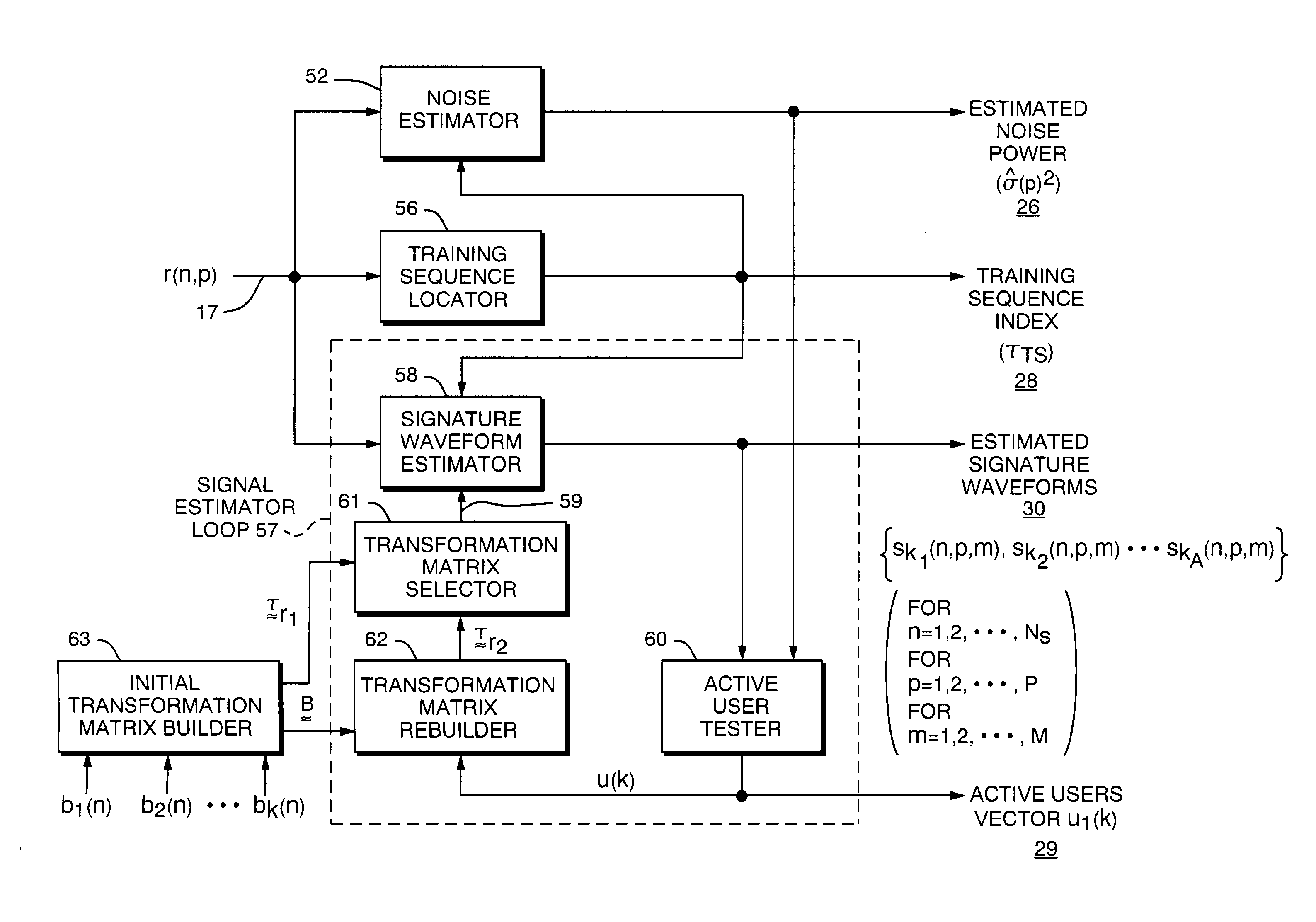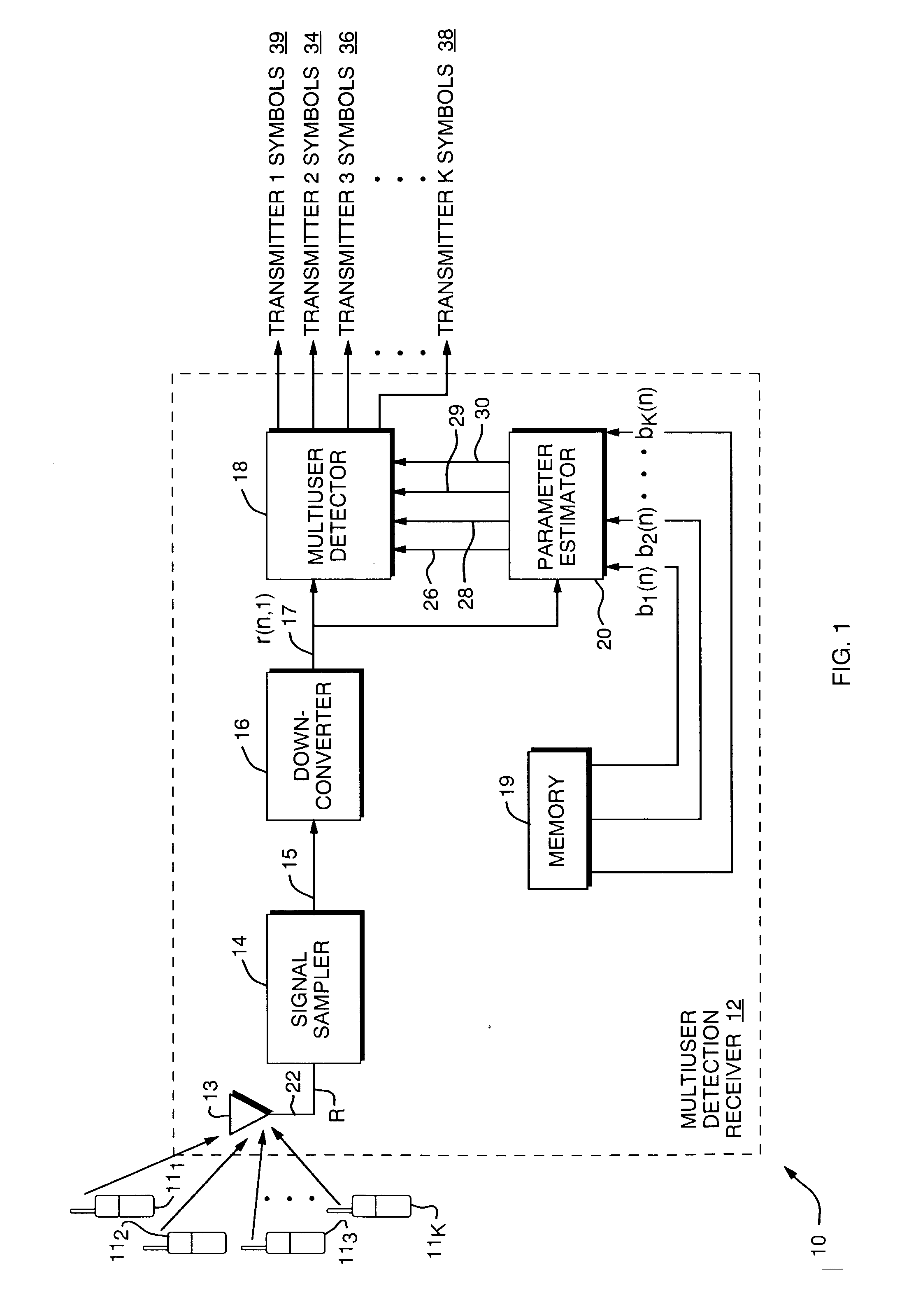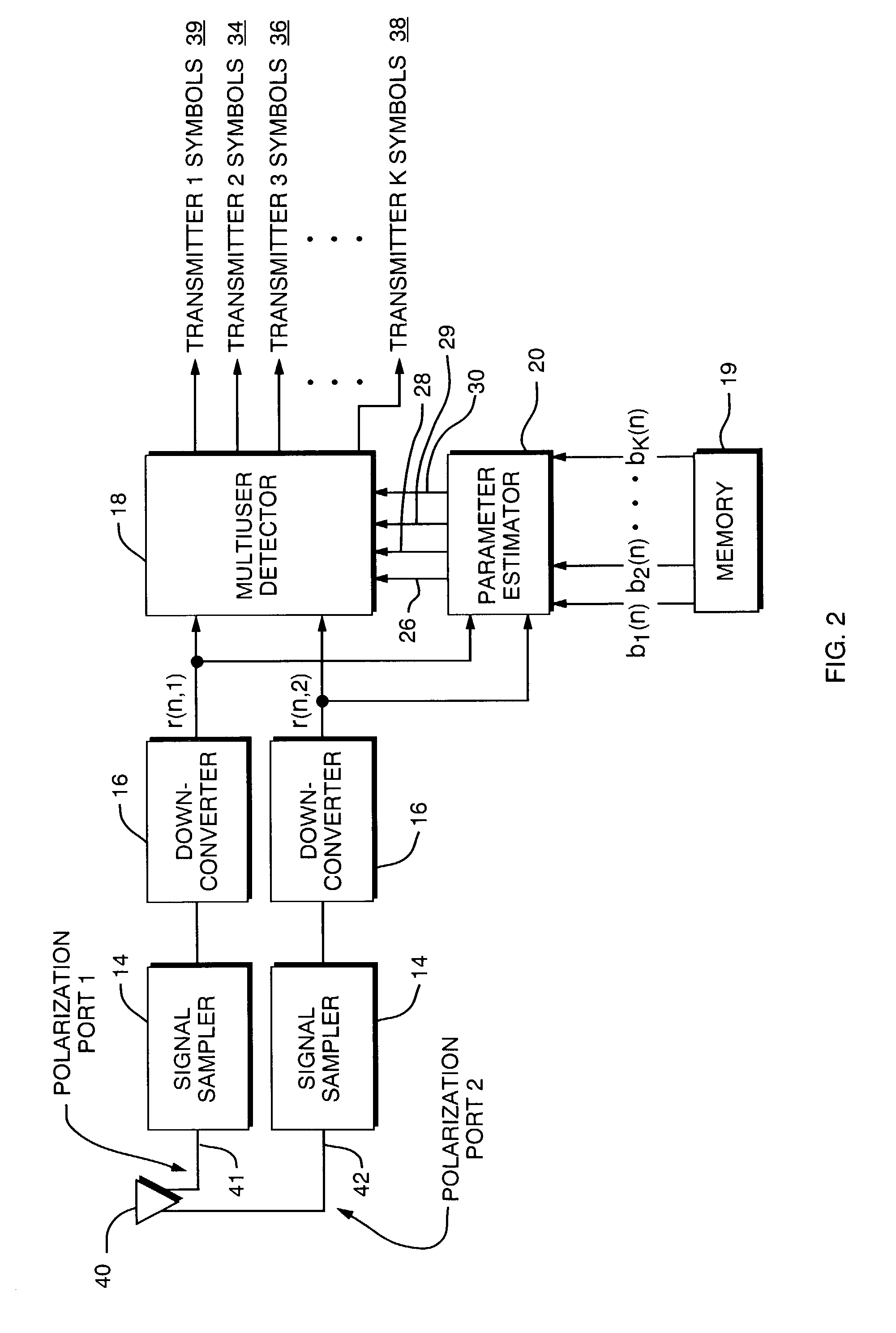Parameter estimator for a multiuser detection receiver
a multi-user detection and estimator technology, applied in diversity/multi-antenna systems, error detection/prevention using signal quality detectors, amplitude demodulation, etc., can solve problems such as virtually impossible conditions to meet, no method for estimating parameters, and dent design not working
- Summary
- Abstract
- Description
- Claims
- Application Information
AI Technical Summary
Benefits of technology
Problems solved by technology
Method used
Image
Examples
Embodiment Construction
[0029] Referring to FIG. 1, a system block diagram is shown of a Communication System 10 comprising a Multiuser Detection (MUD) Receiver 12 and a plurality of User Transmitters 11.sub.1 to 11.sub.K which are all simultaneously transmitting co-channel, interfering digital signals, all on the same frequency, all using the same type of modulation scheme such as digital phase shift key (PSK) or quadrature amplitude modulated (QAM) signals, with the same nominal data rate. Each of the User Transmitters 11.sub.1 to 11.sub.K has a unique, known training sequence. The training sequences are roughly aligned as received at a Receiver Antenna 13, so that the training sequences mostly overlap. This type of synchronization is normally provided in communication systems through the use of a synchronization signal transmitted from a unit co-located with the MUD receiver 12. Alignment of the symbol transitions is not required. A Table at the end of the Description summarizes the nomenclature used he...
PUM
 Login to View More
Login to View More Abstract
Description
Claims
Application Information
 Login to View More
Login to View More - R&D
- Intellectual Property
- Life Sciences
- Materials
- Tech Scout
- Unparalleled Data Quality
- Higher Quality Content
- 60% Fewer Hallucinations
Browse by: Latest US Patents, China's latest patents, Technical Efficacy Thesaurus, Application Domain, Technology Topic, Popular Technical Reports.
© 2025 PatSnap. All rights reserved.Legal|Privacy policy|Modern Slavery Act Transparency Statement|Sitemap|About US| Contact US: help@patsnap.com



